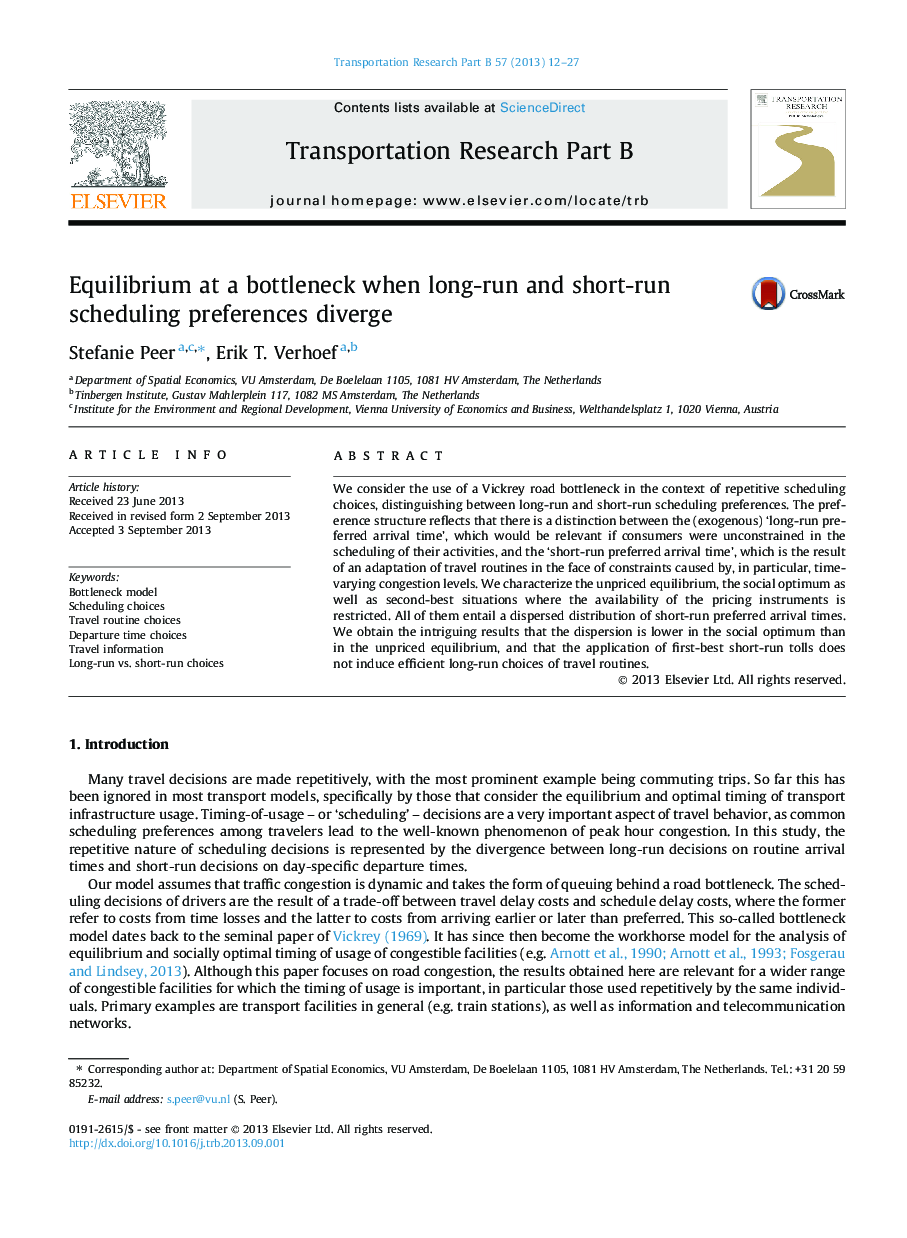| Article ID | Journal | Published Year | Pages | File Type |
|---|---|---|---|---|
| 1131949 | Transportation Research Part B: Methodological | 2013 | 16 Pages |
•We consider repetitive scheduling decisions in a stylized bottleneck model.•First-best short-run tolls do not induce socially optimal long-run choices.•Long-run tolls or complementary first-best tolls are required to reach the optimum.•The equilibrium dispersion of routine work starting times is wider than optimal.•Various second-best optima are characterized.
We consider the use of a Vickrey road bottleneck in the context of repetitive scheduling choices, distinguishing between long-run and short-run scheduling preferences. The preference structure reflects that there is a distinction between the (exogenous) ‘long-run preferred arrival time’, which would be relevant if consumers were unconstrained in the scheduling of their activities, and the ‘short-run preferred arrival time’, which is the result of an adaptation of travel routines in the face of constraints caused by, in particular, time-varying congestion levels. We characterize the unpriced equilibrium, the social optimum as well as second-best situations where the availability of the pricing instruments is restricted. All of them entail a dispersed distribution of short-run preferred arrival times. We obtain the intriguing results that the dispersion is lower in the social optimum than in the unpriced equilibrium, and that the application of first-best short-run tolls does not induce efficient long-run choices of travel routines.
